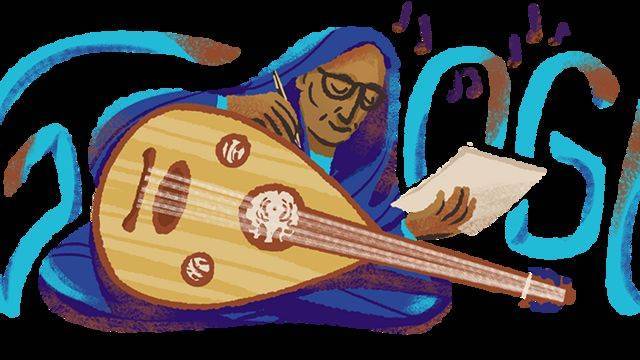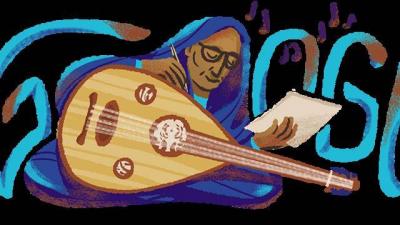Today, the search engine "Google" celebrates the Sudanese oud player and composer Asma Hamza. On this day in 1997, Asma was among the winners of the Grand Night of Decree music competition in Sudan. Her victory marked a turning point in her career, helping her gain recognition among musicians in a male-dominated field.
Who is Asma Hamza?
Asma Hamza Bashir was born in Halfaia Al-Malaki, Sudan, in 1936, as the only child of her parents, and she has one daughter. She loved music from a young age and dreamed of becoming a singer. However, she faced challenges with her vocal cords, but her keen sense of pitch led her to express herself through whistling. When her father heard her melodious whistling, he bought her an oud so she could practice. Asma taught herself to play songs she heard from memory on the oud. Her father encouraged her from the beginning, despite women's creativity in music not being socially accepted in Sudan, leading her to keep her first composition a secret.
As Asma grew older, her musical output increased, and she composed several melodies for many talented Arab artists. She became known as one of the pioneering female composers in Sudan, according to a report published by the BBC. She continued to refine her oud playing and became one of the first officially trained oud musicians in 1946. She started working in the Sudanese Music Corps in 1982.
Asma was nicknamed the "Princess of the Oud" and the "Lover of Umm Kulthum" for the profound impact that the artist had on her, especially when music was predominantly a male domain. In a newspaper interview, Asma spoke about her love for Umm Kulthum, recalling, "When my father noticed my fascination with the lady, he reminded me of attending one of her concerts when we visited Cairo in 1963." Asma was influenced by Egyptian artists such as Umm Kulthum, Mohamed Abdel Wahab, Abdel Halim Hafez, and Shadia. The famous Sudanese musician and oud player Bashir Abbas was her mentor.
Her Journey with the Oud and Composition
Asma's journey with the oud began in 1948, and her first song composition was in 1956—a poem titled "Ya Oyouni" from the collection of Egyptian poet Ali Mahmoud Taha. However, her first notable work as a composer was the song "Al-Zaman Al-Tayyb" for Sudanese poet Saif Al-Din Al-Dusuqi, sung by Sudanese singer Somaya Hassan in 1983. She presented more than 90 compositions and mentioned in an interview that "the opera (Azza and Izza) was the largest work I composed." Among the artists she collaborated with are Abdel Karim Al-Kabili, Mohamed Mirghani, Hisham Damas, Somaya Hassan, and Abida Sheikh.
Sudanese composer Asma Hamza passed away on May 21, 2018, in her home in Halfaia after a long illness.




